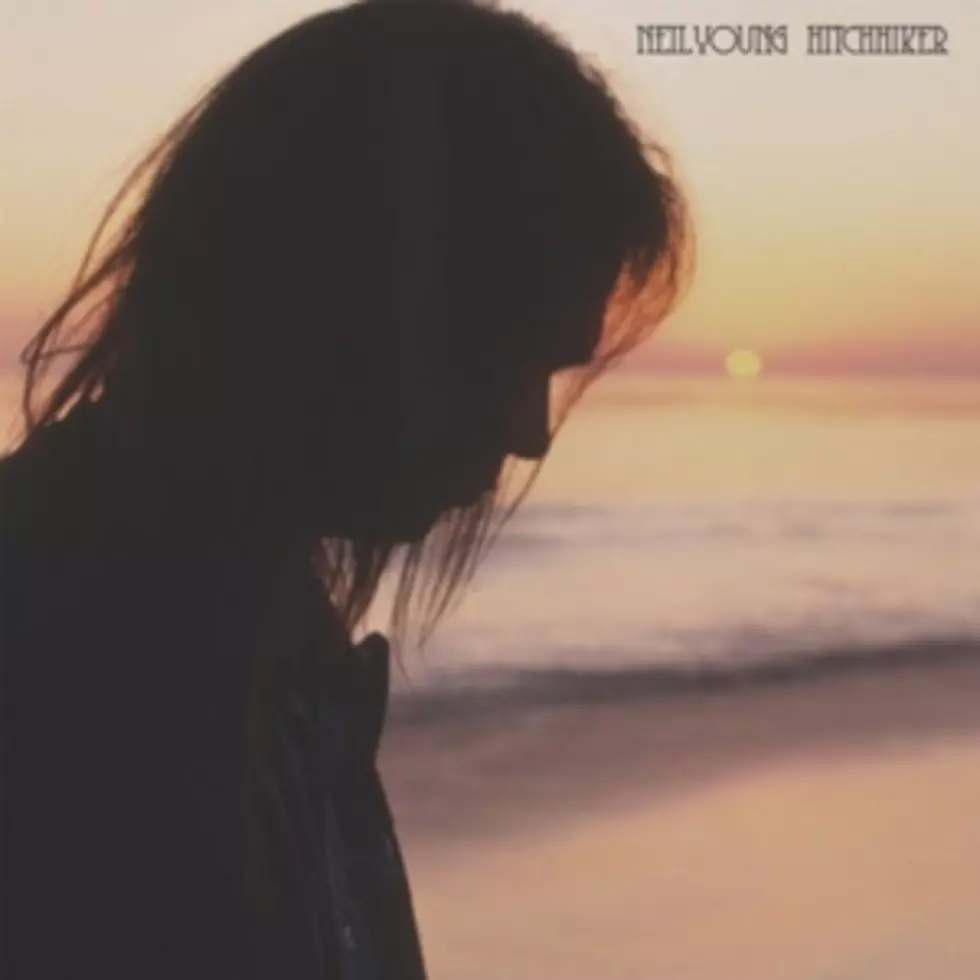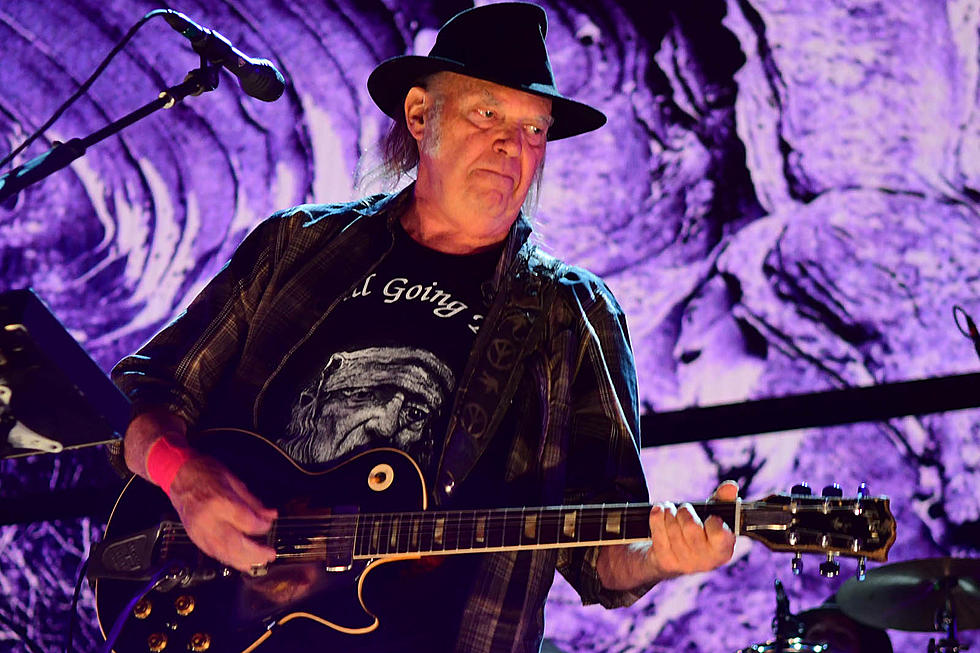
Neil Young, ‘Hitchhiker’ Album Review
Neil Young's unpredictability is reliably predictable. You can count on him to follow a period of one great record after another with a series of left-field genre experiments or frustratingly dull albums. You can expect songs written years or even decades ago to show up once in a while too.
Thing is with Young, though, there's no telling where or when or how these bouts of unpredictability will manifest themselves. Since 2012's excellent Psychedelic Pill (his most recent collaboration with old pals Crazy Horse), he's released a record made entirely in an old-timey recording booth, an LP of orchestral and big-band songs, a single-minded album about the environment with the latest in his long string of partner bands, the Crazy Horse-like Promise of the Real, and a live set enhanced with nature sounds. None of them is particularly memorable.
Following 2016's Peace Trail, a tossed-off album made live in the studio with a pair of studio musicians, and one of the worst records of his career, Young has returned to his vaults -- which must rival Prince's for the amount of unreleased material stored in there -- for Hitchhiker, a collection of songs recorded in a single day in August 1976 that feature just Young, his acoustic guitar and occasional harmonica.
Eight of the album's 10 tracks showed up on later albums: Opener "Pocahontas" was on 1979's Rust Never Sleeps, closer "The Old Country Waltz" arrived on 1977's American Stars 'n Bars and the title track had to wait almost 35 years before it was reworked for Le Noise. This is nothing new for Young; many of his albums were stitched together with earlier songs, including his greatest LP, After the Gold Rush, which contained tracks recorded at a handful of various sessions with different groups.
Hitchhiker comes from a particularly fertile period for Young. In addition to classics like On the Beach, Tonight's the Night and Zuma, which were released in the two years leading up to it, other legendary albums -- like Homegrown and Chrome Dreams -- were recorded and shelved from around this time. Hitchhiker sounds more like a collection of demos rather than an actual album (which is pretty much the case), but there's no denying how great many of these songs are.
Some of them later received more fleshed-out electric readings: "Powderfinger," with the assistance of a raging Crazy Horse, turned into a Rust Never Sleeps highlight; "Hitchhiker" became a feedback- and echo-drenched noise attack on Le Noise. And some stayed just the way they're heard here ("Captain Kennedy," from 1980's Hawks & Doves, "Campaigner," which appeared on the 1977 compilation Decade). But within the context of Hitchhiker, they reveal themselves as an individual piece of work.
Two songs make their first appearances here, "Hawaii" and "Give Me Strength," but this stripped-down session from a Malibu studio gives even the most familiar songs new perspective. The full-band fury is missed on the Hitchhiker version of "Powderfinger," but the story at the center of it is made even more harrowing. Better is the title song, which, in this bare-bones take, is uncluttered and engaging compared to the plugged-in one from 2010. It's the striking centerpiece of a semi-lost, and thankfully resurrected, chapter in Young's long career. And a dusted-off portrait of an artist near his peak.
Neil Young Albums Ranked Worst to Best
More From Ultimate Classic Rock









